WWII France February 14th 1944 Letter Sgt. McNamara 4th Machine Records Unit
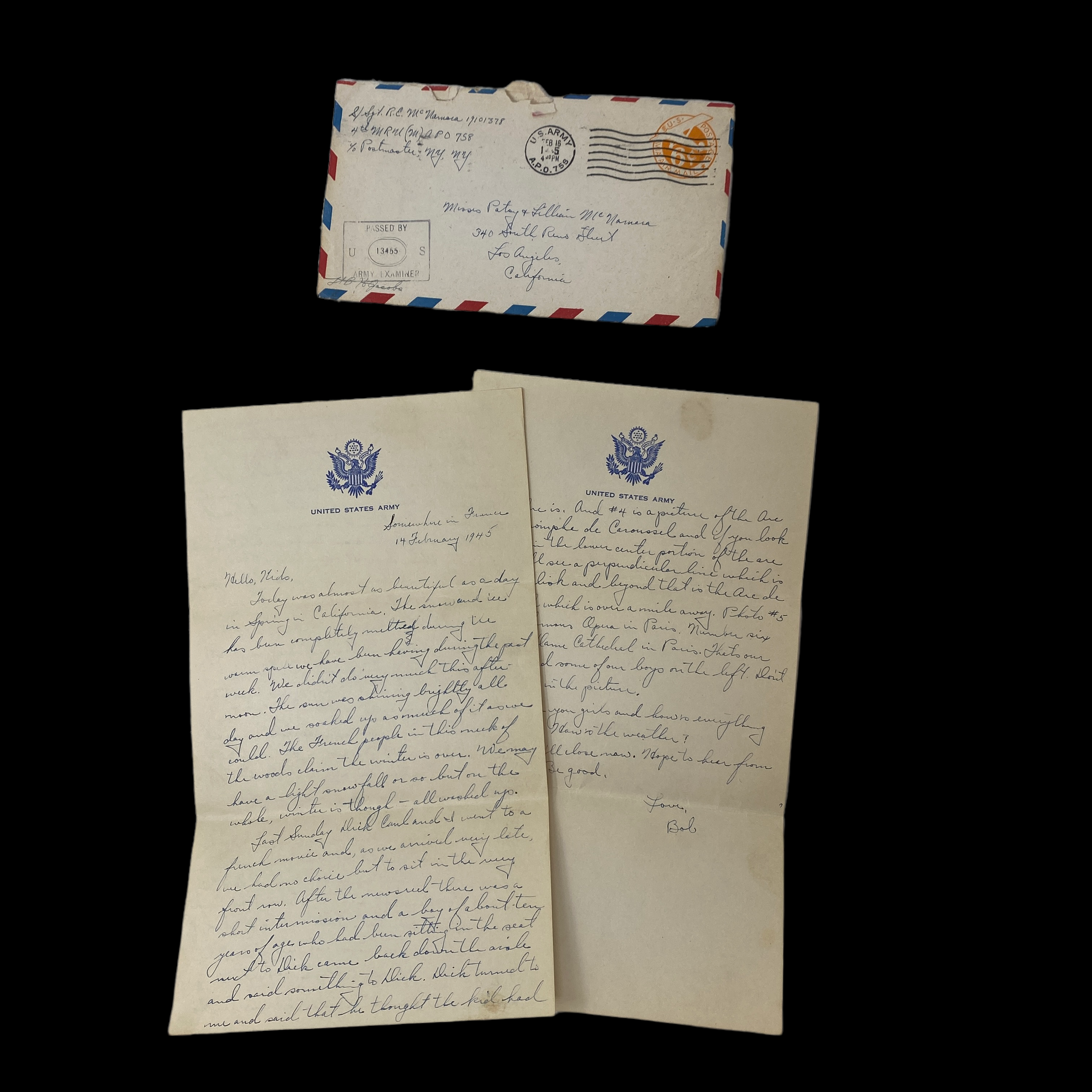

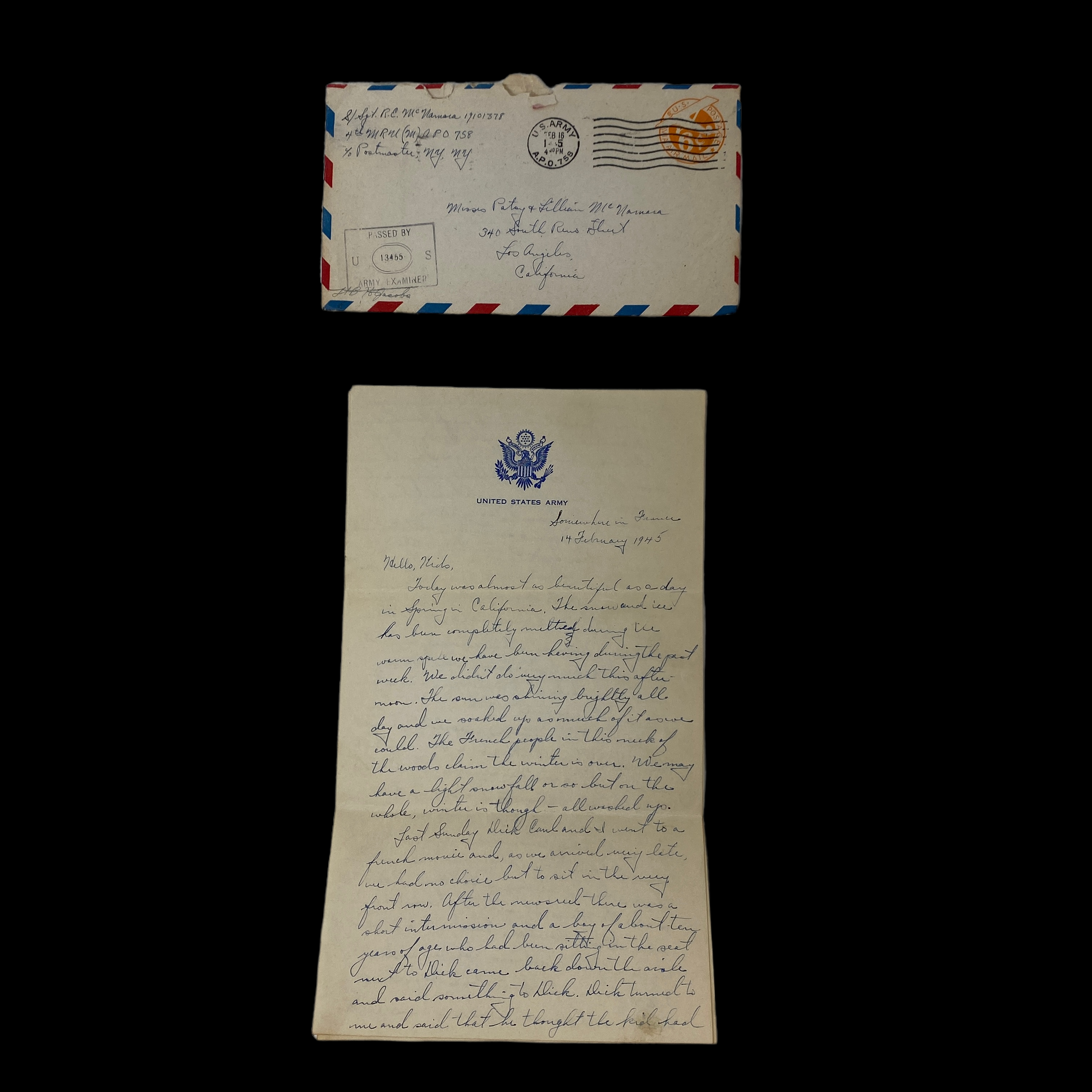
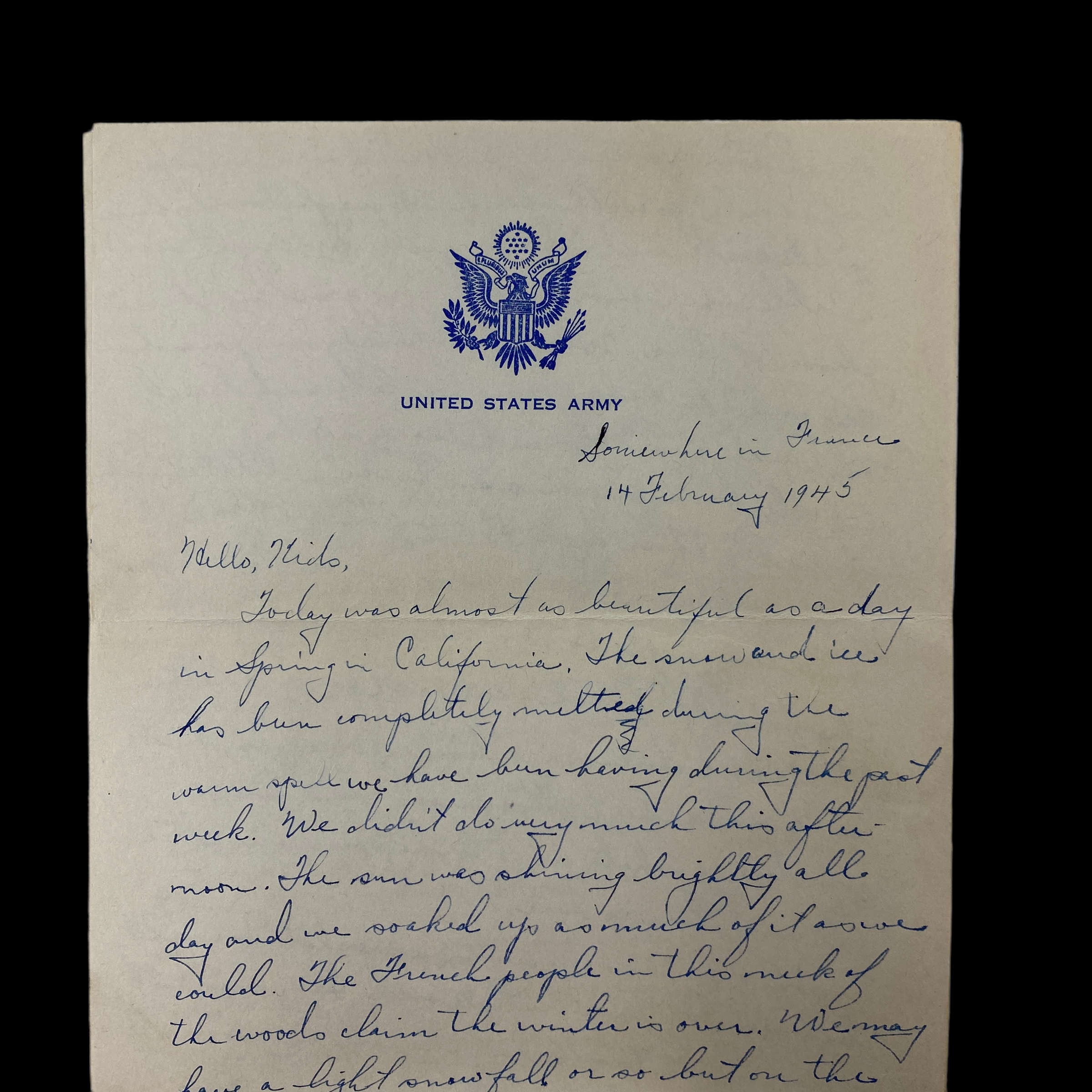
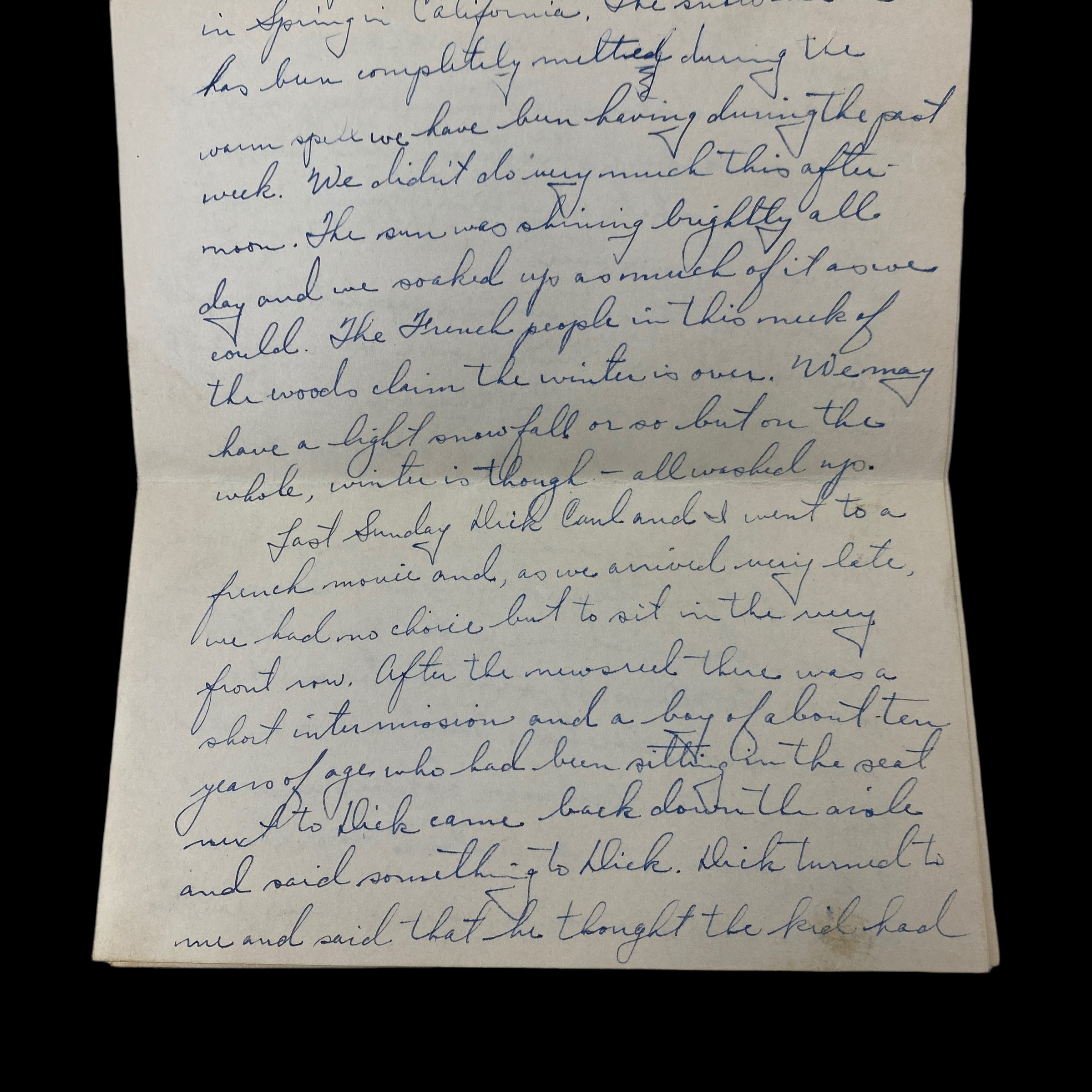
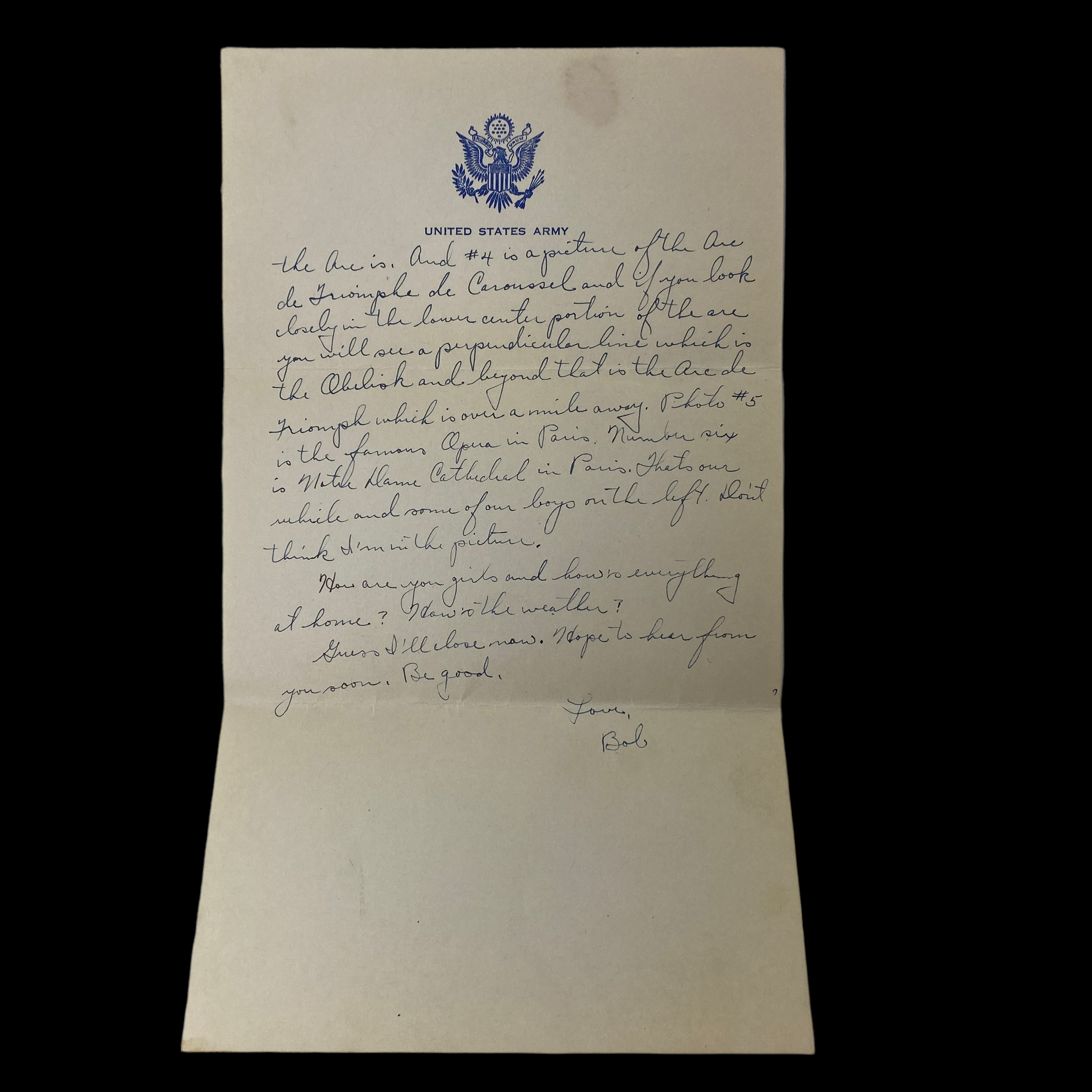
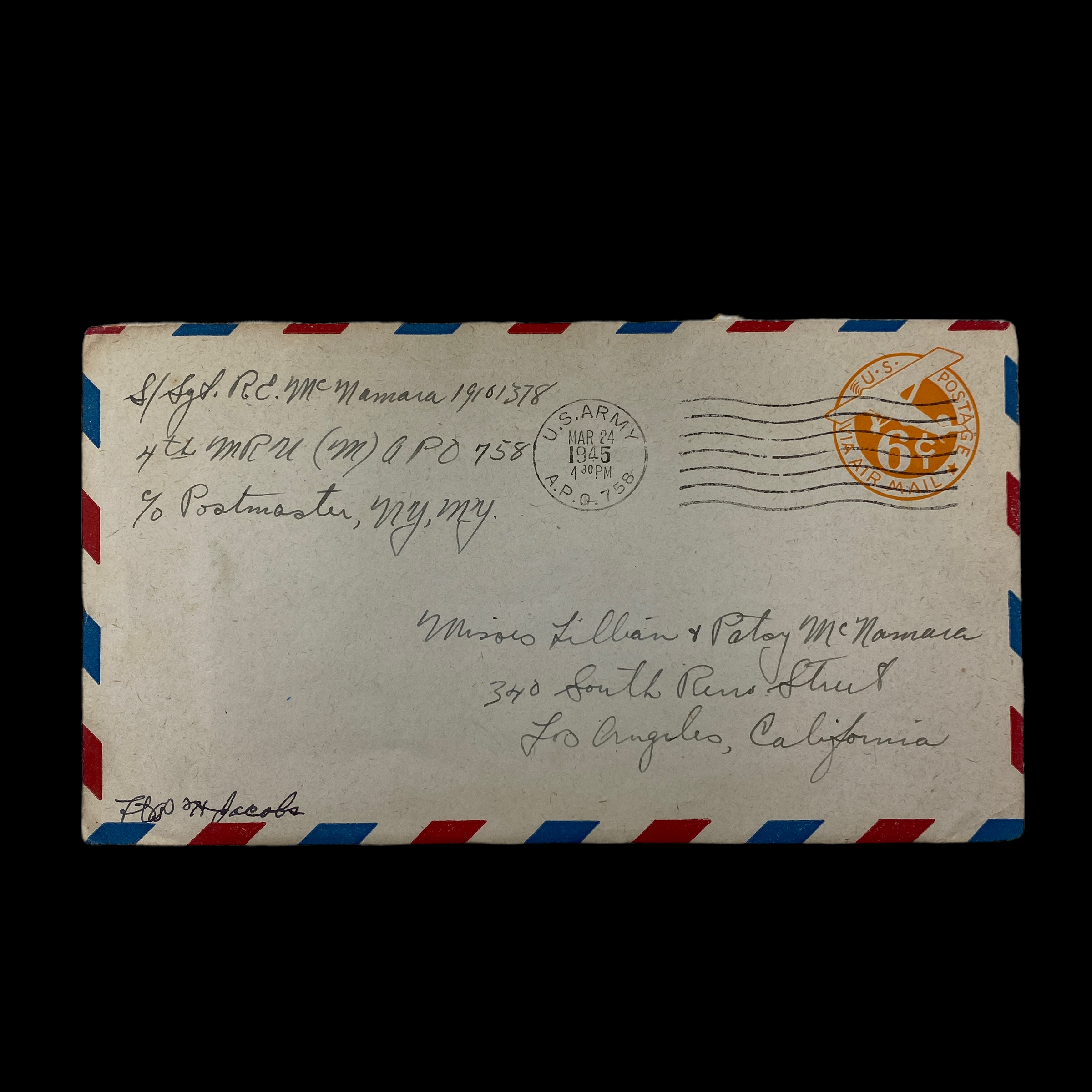

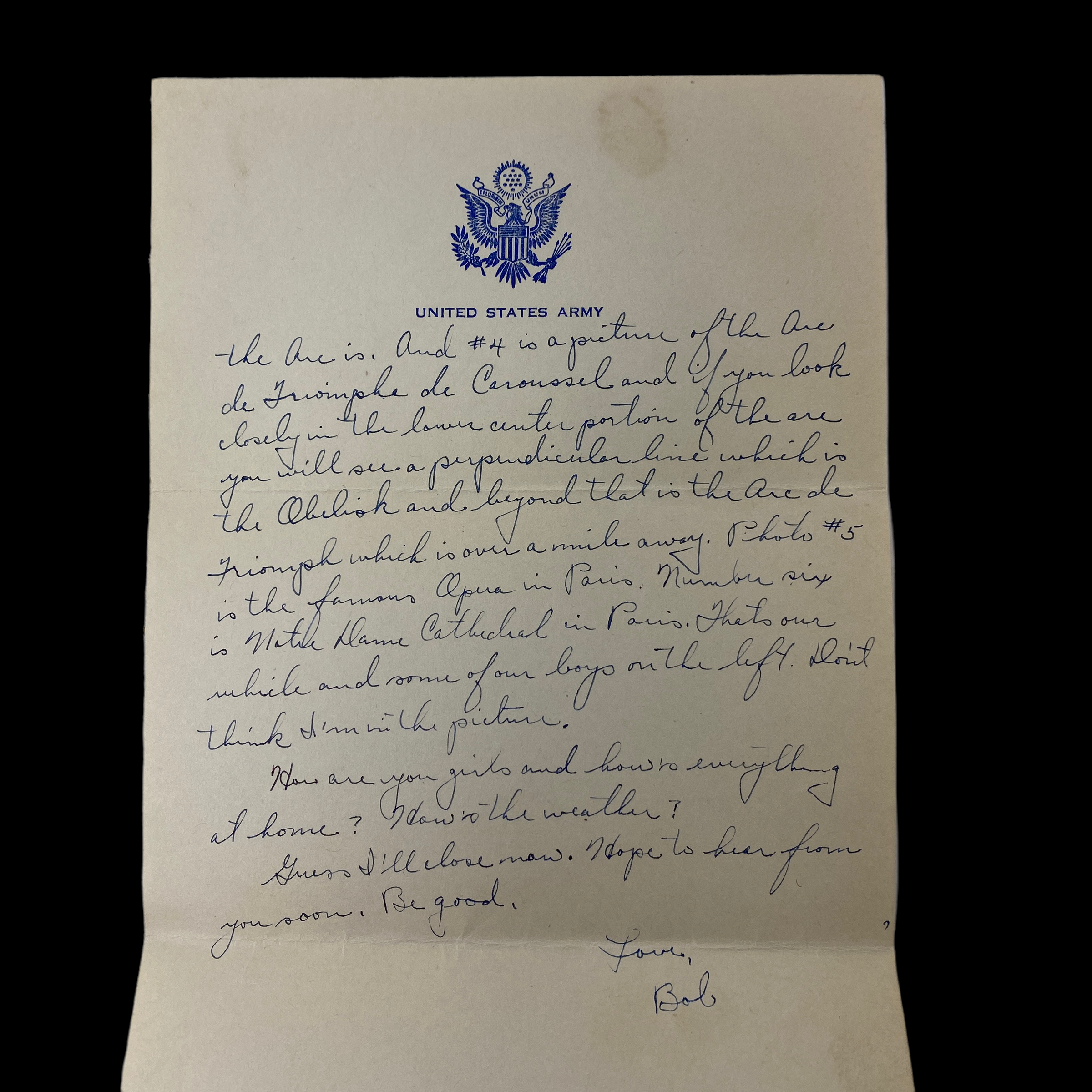
WWII France February 14th 1944 Letter Sgt. McNamara 4th Machine Records Unit
Comes with hand-signed C.O.A.
*General Patton honored the men of the 4th Machine Records Unit with words and decorations; the German High Command honored them by trying to hunt them down—a German officer was captured with orders to take a Machine Records Unit with all machines and records intact—and all personnel alive.
This incredible and original WWII U.S. soldier’s combat letter was written by Sgt. McNamara of the 4th Machine Records Unit (Mobile Type) while fighting against the Germans in the European Theater. Sgt. McNamara and the 4th Machine Records Unit are accredited with combat service records in France and Germany with special combat accommodations during the Ardennes Offensive…also known as the Battle of the Bulge which took place from place from December 16th, 1944 to January 1945.
This specific letter was written by Sgt. McNamara in France on December 27, 1944.
When asking a veteran of the Machine Record Unit what his job was in WWII he responded by saying “I went ashore at Normandy on D-Day+3. My job was to follow General Patton with a string of wire.”
Mobile Machine Records Units (MRUs) were the invention of Lieutenant Arthur K. (Dick) Watson, son of Thomas J. Watson Sr. He proposed housing punch-card machines in army trucks for mobile use in combat zones. It was a unique application of IBM Electronic Accounting Machines (EAM) with their installation in deployable units, which followed the troops—sometimes under fire—gathering, evaluating and forwarding intelligence.
These units would keep track of bombing results, casualties, prisoners, displaced persons, and supplies. Russ commented that, “We knew within a two-week accuracy where all our troops were around the world.” This was, at the time, a wartime advantage. The same type of machine was used to break the Japanese code before the Battle of Midway, help hunt down and sink German U-boats, and architect the atomic bomb that finally ended World War II.
Russ described teams of men pulling together to ensure that the Allies had faster access to information that was more accurate and detailed than their Axis counterparts. Robert P. Patterson, Secretary of War in 1946, commented on these men and machines:
"They went everywhere our fighting men went. ... They landed on the beaches . . . They operated in the jungles and snow-covered huts of the Arctic.”
These units discovered honor in the South Pacific, North Africa and, yes, following General Patton across Europe.
These were soldiers that made a difference, not with bullets, but information. Russ was a member of this elite team not necessarily honed in the art of hand-to-hand combat, but skilled in maintaining the equipment that provided timely information to their commanders—information that saved lives and shortened the war.